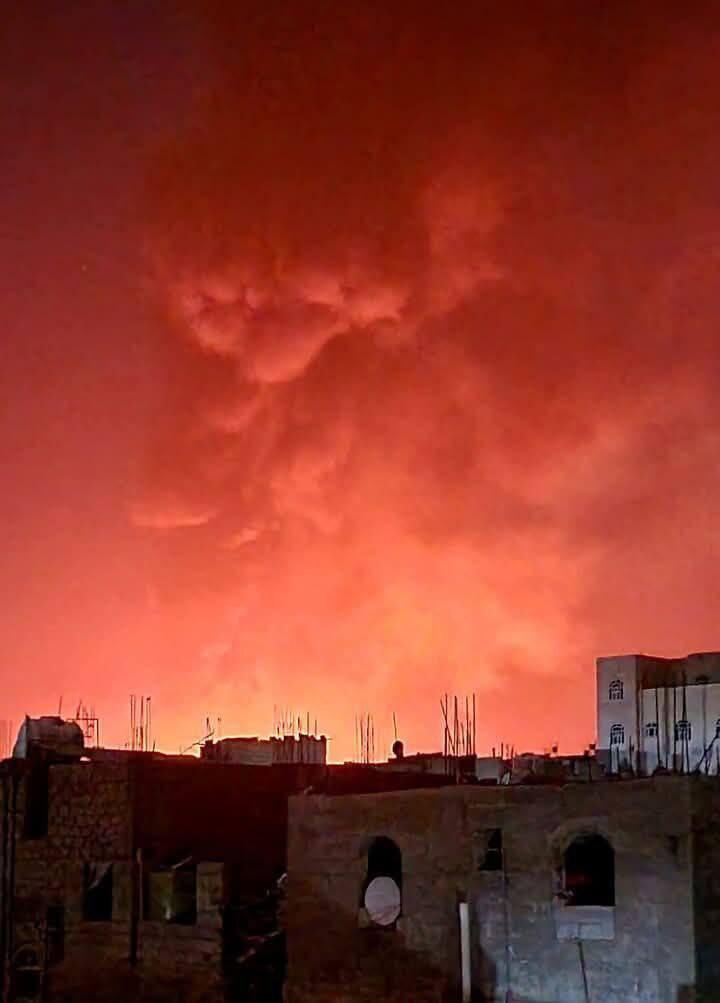Getting your Trinity Audio player ready...
Mossad Director David Barnea has recommended targeting Iran rather than the Houthis in response to recent missile attacks on Israel, arguing that Israel should "go for the head, Iran," officials familiar with recent high-level discussions told Ynet on Sunday.
A report in the Saudi newspaper Asharq Al-Awsat cited Israeli security sources who believe the Houthis operate with relative independence but receive significant Iranian support, including funding, equipment, expertise and missile guidance.
3 View gallery


Mossad Director David Barnea; aftermath of Israeli strike on Houthi-controlled Hodeidah Port
(Photo: Yariv Katz)
Recent investigations revealed that missiles launched by the Houthis toward Israel featured advanced technologies, such as extended fuel capacities, allowing them to hover over targets longer and complicating interception. Israel's Arrow missile defense system reportedly struggled to counter these missiles effectively.
Israeli political sources also disclosed ongoing efforts to convince the U.S. to launch a dual military operation targeting both Houthi forces in Yemen and Iran.
CENTCOM TARGETS YEMENITE CAPITAL
(ILTV)
Meanwhile, Prime Minister Benjamin Netanyahu vowed on Sunday decisive action against Houthi missile attacks on Israel.
Speaking after a meeting of the Security Cabinet in the IDF Northern Command, Netanyahu linked the Houthis to Iran’s "Axis of Evil" and emphasized international cooperation against their actions.
“As we have acted decisively against other terror arms of Iran’s Axis of Evil, we will act against the Houthis,” Netanyahu said. “In this case, we are not acting alone. The U.S. and other nations see the Houthis as a threat not only to international shipping but to the global order.”
He assured Israelis that, despite potential delays, the results would mirror Israel’s successes against other terror groups. “I ask citizens to remain patient and steadfast, as you have so far,” he added. “Follow Home Front Command guidelines closely. You do that, and we will take care of everything else.”
Get the Ynetnews app on your smartphone: Google Play: https://bit.ly/4eJ37pE | Apple App Store: https://bit.ly/3ZL7iNv
Ahead of the Cabinet meeting, Netanyahu and ministers reviewed a display of weapons seized by Israeli forces in southern Lebanese villages during ground operations. The briefing, led by IDF Chief of Staff Lt. Gen. Herzi Halevi and Northern Command head Maj. Gen. Ori Gordin, highlighted the discovery of Hezbollah weapons and ammunition stored in private homes.
Netanyahu also visited a mock tunnel designed to replicate command centers found during operations in Lebanon.
3 View gallery


Crater left by Houthi-launched ballistic missile, in Tel Aviv
(Photo: Jack GUEZ / AFP)
Meanwhile, the U.S. military confirmed that an F/A-18 fighter jet was damaged by "friendly fire" during an operation against Houthi targets in Yemen on Saturday. The two pilots were rescued, with one sustaining minor injuries. The Houthis claimed responsibility for downing the aircraft, saying their forces repelled the attack on their positions in Sanaa.
Houthi military spokesperson Yahya Saree asserted that their forces had also targeted the USS Harry S. Truman aircraft carrier and its associated destroyers using eight cruise missiles and 17 drones during simultaneous operations. Saree claimed the attack forced the carrier group to retreat and vowed continued action as long as the Gaza war persists.
Overnight Saturday, a ballistic missile launched from Yemen struck Tel Aviv after evading Israeli interception attempts, directly wounding 16 people and injuring 21 others as they sought shelter.
The IDF confirmed an investigation into the failure of the missile defense systems and said that lessons learned are already being implemented to improve both interception capabilities and early warning systems.
"The air defense array is not airtight," the IDF said. "We urge the public to continue following Home Front Command directives to ensure safety."






